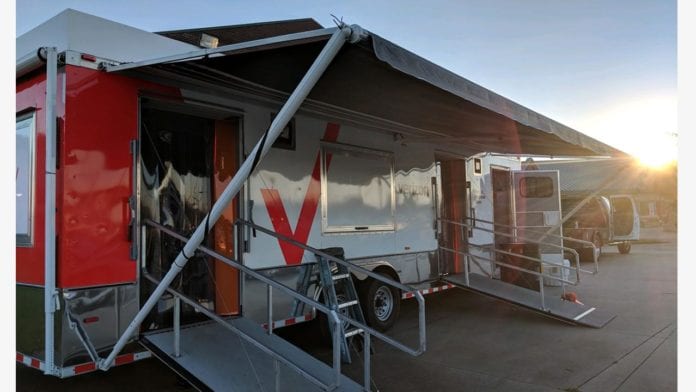Verizon waiving fees for customers in impacted areas
After sustained “unprecedented” damage to its fiber network in the Florida Panhandle when Hurricane Michael raged through beginning Oct. 10, the operator said today it made “critical progress” overnight and restored its “primary fiber hubs.”
As the network recovery operation continues, Verizon is waiving three months of service fees for business and consumer subscribers in Bay and Gulf counties. Verizon Wireless President Ronan Dunne on Twitter said network operations continue “to improve, and we will not stop until 100% of our service is restored. We recognize how essential our service is [and] are giving 3 months free service to those impacted by the storm.”
According to the carrier, the “majority” of service has been restored in Panama City Beach, and the network is up and running along the Highway 79/388 loop, parts of downtown Panama City, between Panama City and Tyndall Air Force Base, and along Highway 98.
One factor at play here is the potential for debris cleanup activities to further damage fiber and power infrastructure. According to a company spokesperson, “The situation is continuously evolving with thousands of recovery workers managing debris removal as well as power and fiber rebuilding and restoral efforts throughout the community. These efforts can result in additional cuts to fiber which is buried underground and also hung on utility poles. We are prepared to quickly repair any additional fiber cuts resulting from those activities. ”
Verizon, and other carriers, have deployed network infrastructure in support of public safety efforts and first responder communications.

